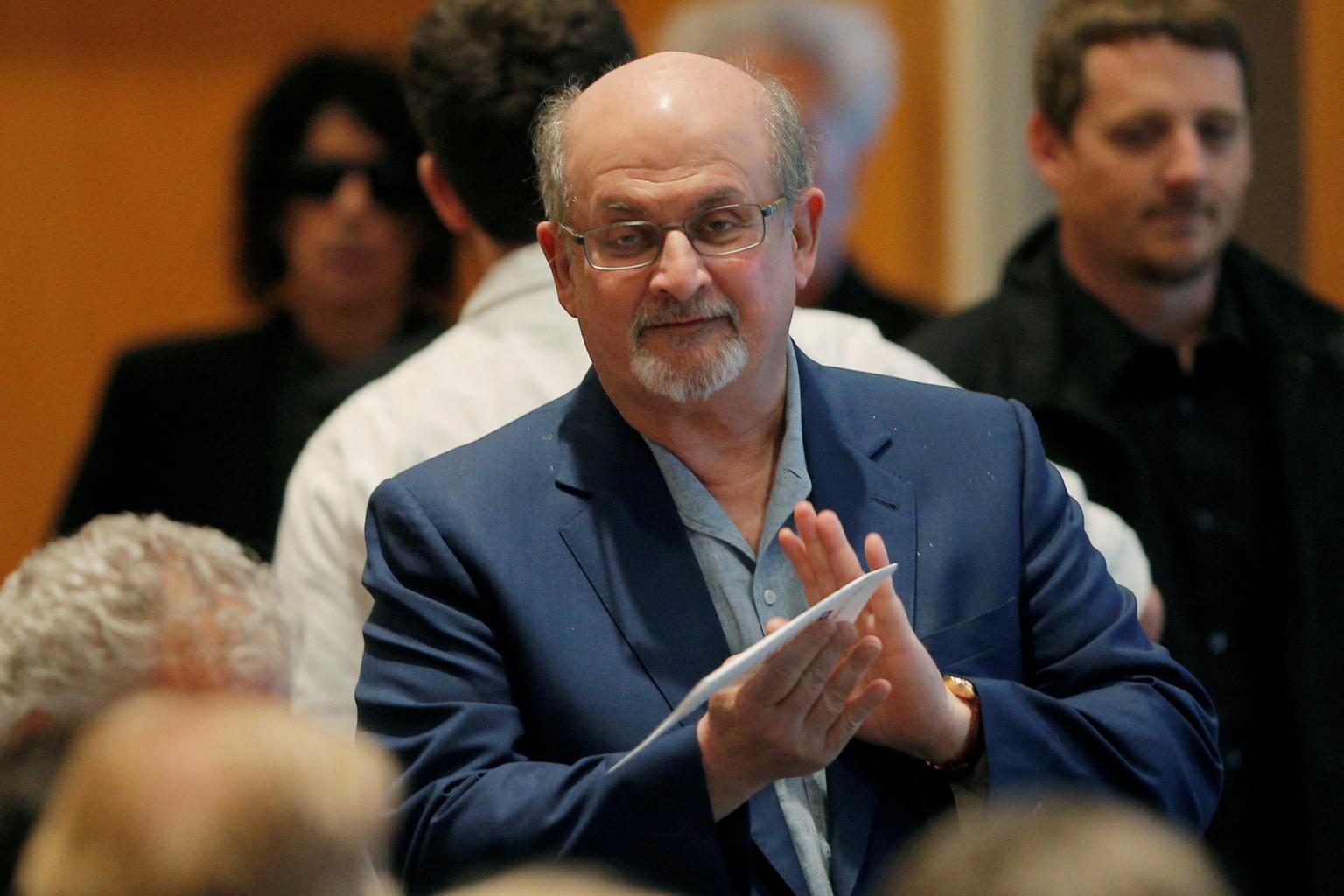Salman Rushdie suspect had Shi'ite extremist sympathies: Report
Sign up now: Get ST's newsletters delivered to your inbox

Police said on Aug 12 they had not established a motive for the attack on author Salman Rushdie.
PHOTO: REUTERS
NEW YORK (REUTERS) - The suspect in the attack on Salman Rushdie at an event in New York state was sympathetic to Shi'ite extremism and Iran's Islamic Revolutionary Guard Corps (IRGC), NBC New York cited law enforcement sources as saying on Saturday (Aug 13).
Indian-born author Rushdie, who spent years in hiding after Iran urged Muslims to kill him over his novel "The Satanic Verses", was stabbed in the neck and torso on stage at a lecture on Friday. After hours of surgery, Rushdie was on a ventilator and unable to speak on Friday evening.
Police have identified the suspect in custody as Hadi Matar, a 24-year-old man from Fairview, New Jersey, who bought a pass to the event at western New York's Chautauqua Institution.
Reuters could not immediately establish whether Matar had legal representation.
A preliminary law enforcement review of Matar's social media accounts showed he was sympathetic to Shi'ite extremism and IRGC causes, NBC New York reported, citing an unnamed law enforcement official familiar with the investigation into the attack.
Matar was born in California and recently moved to New Jersey, the NBC New York report said, adding that he had a fake drivers license on him.
FBI officials went to his last listed address, in Fairview, a Bergen County borough just across the Hudson River from Manhattan, on Friday evening, NBC New York reported.
New York and New Jersey police did not immediately respond to a request for comment on the NBC New York report.
Police said on Friday they had not established a motive for the attack on Rushdie, 75, who was being introduced to give a talk to an audience of hundreds on artistic freedom when the attacker rushed to the stage and lunged at the novelist. Rushdie has lived with a bounty on his head since 1989.
NBC New York said the official told it that there were no definitive links established to the IRGC, but the initial assessment indicated the suspect was sympathetic to the Iranian government group.
The IRGC is a powerful faction that controls a business empire as well as elite armed and intelligence forces that Washington accuses of carrying out a global extremist campaign.
There has been no official government reaction in Iran to the attack on Rushdie, but several hardline Iranian newspapers expressed praise for his assailant.
Ali Tehfe, mayor of Yaroun in the south of Lebanon, said that the suspect was the son of a man from the town. The suspect's parents emigrated to the United States and he was born and raised there, the mayor added.
Asked if the suspect or his parents were affiliated with or supported the Iran-backed Hezbollah group in Lebanon, Tehfe said he had "no information at all" on their political views.
An official from Hezbollah told Reuters on Saturday that the Iran-backed Lebanese armed group had no additional information on the attack on Rushdie.
The stabbing was condemned by writers and politicians around the world as an assault on freedom of expression.
Rushdie, who was born into a Muslim Kashmiri family in Bombay, now Mumbai, before moving to Britain, has long faced death threats for "Satanic Verses". The 1988 novel, viewed by some Muslims as containing blasphemous passages, was banned in many countries with large Muslim populations.
In 1989, Ayatollah Ruhollah Khomeini, then Iran's supreme leader, pronounced a fatwa, or religious edict, calling upon Muslims to kill the novelist and anyone involved in the book's publication for blasphemy.


